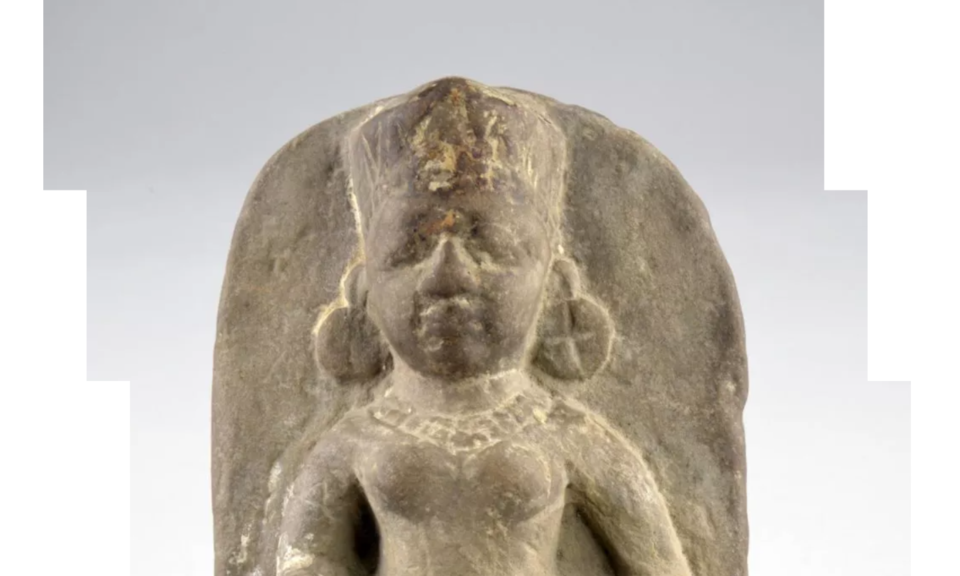REGINA — Earlier this month, the MacKenzie Art Gallery in Regina returned a stolen statue of a Hindu goddess to a shrine in India, where it had been wrongfully taken more than a century ago.
Winnipeg artist Divya Mehra first noticed the idol, a statue of Hindu goddess Annapurna, while doing research for her exhibition “From India to Canada and Back to India (There is nothing I can possess which you cannot take away” at the MAG last year.
It was Mehra’s attention to the statue that first noted it had been misidentified as another Hindu deity, Vishnu, which was corrected by the gallery in 2019. This then led to flagging the idol as a stolen cultural item.
In a statement issued by the MAG, the gallery explained that the Annapurna idol was taken from a public shrine on the Ganges River in Varanasi, India in 1913 and gifted to the gallery’s namesake, Regina lawyer and art collector Norman MacKenzie.
According to the gallery, a stranger overheard MacKenzie expressing desire to have the stone statue and stole it from the stone steps of the shrine to give to him. MacKenzie then brought the idol home to Canada with him, to be added to his personal art collection.
The statue was later included in MacKenzie’s bequest of his collection to the University of Regina in 1936, where it remained stored in the permanent collection in the MAG’s basement until recently.
“When the current administration at University and the MacKenzie Art Gallery were alerted to the documentation which revealed the statue as an object of culture theft, both institutions committed to taking appropriate action and repatriating the piece back to its rightful home,” said the MAG.
A virtual repatriation ceremony took place in early November over video call between U of R interim president Dr. Thomas Chase and High Commissioner of India Ajay Bisaria, to officially begin the return of the idol to India.
The statue’s journey took four days, said the gallery, but was completed earlier this month. Annapurna returned to her rightful place on Nov. 14, where the idol now resides in a newly renovated temple in Varanasi.
“This Murti [idol] will be taken in a procession to the Kashi Vishwanath temple where the pranaprathista will be performed, thereby reinstating the spiritual & divine grace of Maa Annapurna Devi,” said Union Culture Minister G. Kishan Reddy, prior to the journey. “Blessed to have the Murti brought back to her rightful place.”
In the idol’s place within the gallery’s permanent collection, the MAG has accepted a sculpture by Mehra titled “Not Vishnu” to be periodically displayed and stored in the same space the Annapurna idol previously occupied.
The MAG thanked Mehra for her investigation work, as it drew attention to “widespread, unethical practices that museums are built on, while urging them in a new direction.”
“While Annapurna is no longer housed in the MacKenzie’s vault, her presence will forever be marked with this placeholder signaling a troubling history and a hopeful beacon for a new direction,” said the MAG.
Since the repatriation of the Annapurna idol, the MAG is reportedly reviewing several thousand other pieces in it's collection.
The MAG’s permanent collection contains more than 5,000 works that span over 5,000 years of art and culture, many of which were obtained as part of MacKenzie’s private collection — including MacKenzie’s personal journals.




